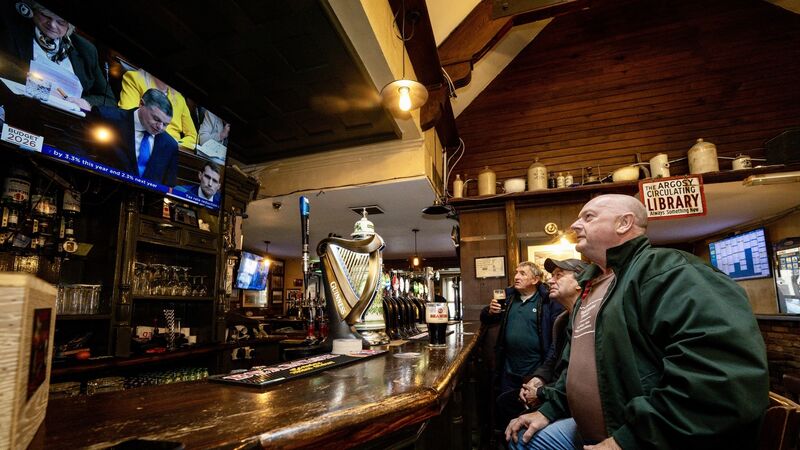Budget 2026: €10 increase to core social welfare rates; minimum wage hike; Vat changes

At The Groves Bar in Blackpool, punters swallow the latest Budget news along with their afternoon pints.
A social welfare boost, Vat changes, a minimum wage price hike, and a new derelict property tax have all been announced by the Government as part of Budget 2026.
Here's how the day played out as Paschal Donohoe and Jack Chambers announced Budget 2026.














